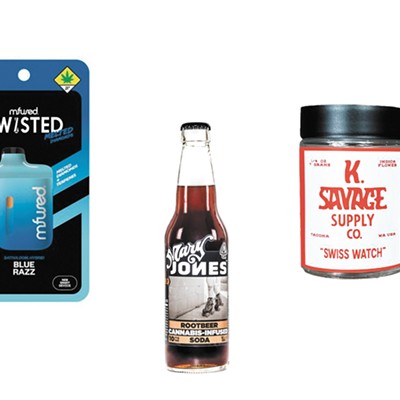Though it's not required by the state, one local laboratory is taking the initiative and testing cannabis for pesticides for producers and processors throughout Washington.
Trace Analytics, based in downtown Spokane, spent the past 11 months talking to industry experts, processors and producers to create a test that would identify the highest number of pesticide compounds possible.
"We'd like to see the marketplace succeed, so we knew that science was going to play a role in shaping the perception for people to pave the way for the cannabis industry to go mainstream," Trace CEO Gordon Fagras says. "It was going to be highly scrutinized, so we wanted to bring that level of scrutiny to the process."
Trace, which currently tests samples for 178 compounds, hopes to have 400 in its inventory in the future.
Every cannabis sample that comes into Trace Analytics goes through a chain of custody, is entered into the lab's database and then put into a safe while it awaits a spot in the testing queue.
From there, the sample is divided and separated according to what testing is required. This process can take anywhere from a few hours to a day or two.
"It's pretty fast," Fagras says. "We don't really stand on the precedence of holding up samples."
Pesticide testing takes a little longer, especially given the way the lab has been inundated with samples.
The lab runs pesticide tests in small, controlled batches, so samples may take up to two weeks to process.
"We're still battling now to ensure our accuracy, because we are making some pretty serious calls on people's livelihoods here," Fagras says. "We want to make sure that we're doing this correctly."
Trace Analytics began the costly and time-consuming process of creating a pesticide test with the good of the industry, the producers and processors, and the consumer in mind.
Fagras believes the economics of the cannabis industry rely on the laboratories, because if the labs allow subpar material to enter the marketplace, prices will drop because of oversupply.
If that subpar material never enters the marketplace in the first place, growers making an effort to grow quality cannabis will become in-demand, boosting sales and enabling those producers and processors to make a living.
More than anything, Trace Analytics is concerned with those consuming medical marijuana.
"We built the lab based on the fundamental premise that patients needed safe and clean medicine," Fagras says. "If they're going to call it medicine, it needs to be clean." ♦























